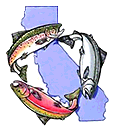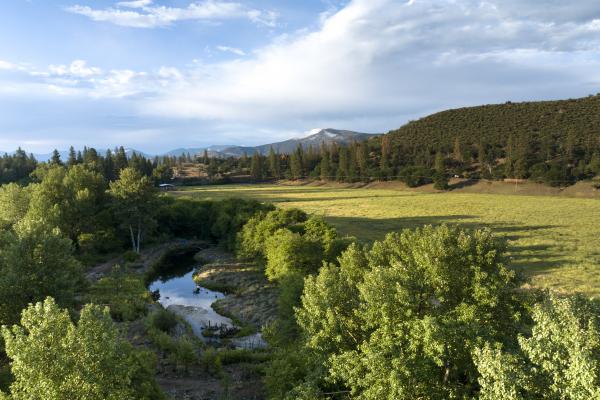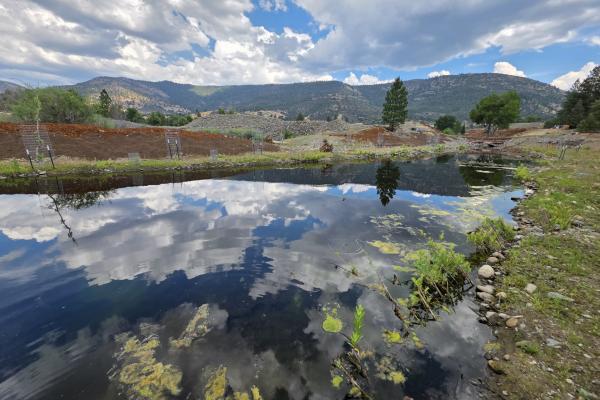Scott River Tour: Scaling Solutions for Salmon and Community
29 April 2026
Up close with the people and projects turning the Scott River’s challenges into opportunities for restoration and renewal.
Field Tour Coordinators: Charnna Gilmore, Scott River Watershed Council, Executive Director;
Betsy Stapleton, Scott River Watershed Council, Project Development & Permitting Specialist;
Erich Yokel, Scott River Watershed Council, Monitoring Supervisor and Project Manager;
Amy Campbell, Senior Project Manager, The Nature Conservancy;
Molly Breitmun, Stewardship Manager, The Nature Conservancy;
P. Travis James, Yurok Tribe, Senior Civil Engineer;
Dustin Revel, California Trout, Project Manager
Betsy Stapleton, Scott River Watershed Council, Project Development & Permitting Specialist;
Erich Yokel, Scott River Watershed Council, Monitoring Supervisor and Project Manager;
Amy Campbell, Senior Project Manager, The Nature Conservancy;
Molly Breitmun, Stewardship Manager, The Nature Conservancy;
P. Travis James, Yurok Tribe, Senior Civil Engineer;
Dustin Revel, California Trout, Project Manager
This full-day field tour will showcase ongoing restoration efforts within the Scott River Watershed, a major tributary of the Klamath River and a critical stronghold for coho recovery in the Klamath River Basin. The tour will highlight restoration techniques that match the scale and complexity of the challenges.
Since 2014, the Scott River Watershed Council (SRWC) has worked to address the challenges facing working landscapes, tackling both legacy impacts and present-day conditions, through collaborative solutions and community engagement. With The Nature Conservancy's (TNC) Scott Watershed conservation purchases in 2023, SRWC and TNC have been working together to achieve large scale restoration in the watershed. Also in 2023, the Yurok Tribe, California Trout, and Farmers Ditch Company (FDC) entered into an agreement to address some long-standing issues within the reach owned by FDC.
The first portion of the tour will feature current restoration efforts underway in the Scott River tailings, showcasing a suite of strategies aimed at rehabilitating this heavily altered landscape.
Participants will see firsthand how the SRWC and its partners are implementing beaver dam analogs (BDAs), constructing floodplains and side channels to reconnect the river with its historic habitat, and acquiring key properties to secure opportunities for long-term recovery. These efforts are designed not only to improve habitat complexity and water quality but also to lay the groundwork for sustained ecological resilience in this critical reach of the watershed.
Participants will also visit a project completed in 2025 by the Yurok Tribe, California Trout, FDC, and other partners that balanced the needs of surface and groundwater connection, habitat creation, and FDC water delivery. The project included the reconstruction of the Scott River and Sugar Creek at their confluence, construction of rearing and high-flow refuge habitat, floodplain improvements, and the construction of new diversion infrastructure.
The second portion of the tour will focus on French Creek, one of the West Coast’s most important contributors to coho salmon populations. The SRWC and TNC will guide participants through a series of restoration sites, highlighting a comprehensive, watershed-scale approach that integrates instream habitat improvements with forest health initiatives. These efforts address critical needs such as enhancing spawning and rearing habitat, improving water quality, and reducing wildfire risk, demonstrating how coordinated actions across the landscape can bolster the long-term resilience of both
the steam systems and its fisheries.
Lastly, the tour will showcase innovative technology that supports the agricultural community in managing cattle while minimizing impacts to sensitive areas such as riparian corridors and meadow systems. Participants will learn how these tools, such as virtual fencing, are helping balance productive grazing with the protection and restoration of critical habitats.




